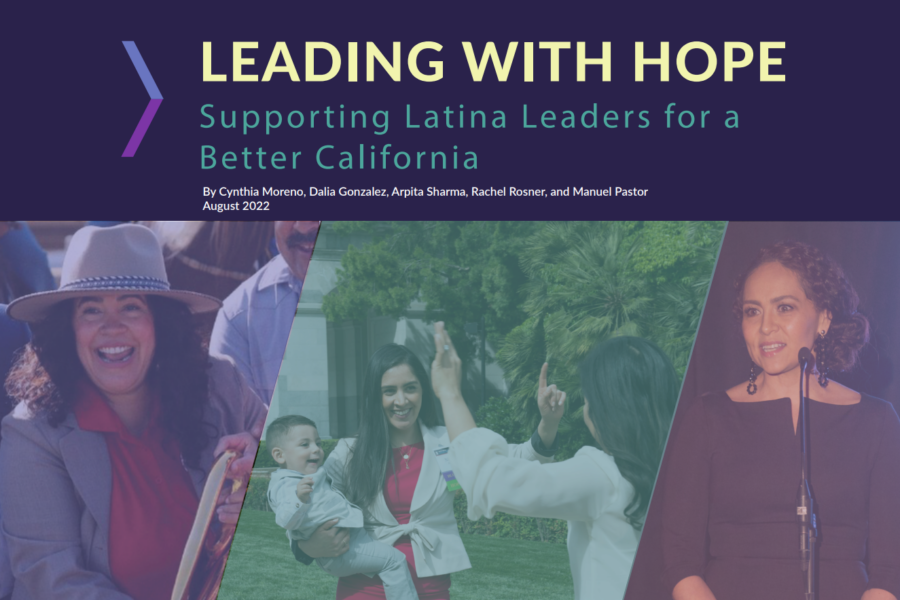August 2022
By Cynthia Moreno, Dalia Gonzalez, Arpita Sharma, Rachel Rosner, and Manuel Pastor
Contributors: Adriana Valencia Wences, Carolina Otero, Emma Yudelevitch, Shannon Camacho

Latinas comprise nearly twenty percent of the California population, representing the largest share of California women at thirty-nine percent. In their role as mothers, Latinas are also raising more than half of the state’s children. In many ways, how Latinas fare helps determine the future of the state. But it is deeper than this. As this report—Leading with HOPE: Supporting Latina Leaders for a Better California exemplifies, California Latinas tend to lead in ways that center equity, build bridges, and will be key to sustaining a robust multiracial democracy.
It is important to acknowledge that this stepping up to leadership is not something that has occurred by chance. Programs like the HOPE Leadership Institute (HLI), led by Hispanas Organized for Political Equality (HOPE), have sought to impart the skills, create the networks, and build the infrastructure needed to lead and build power among Latinas in California. HOPE has recognized what the research tells us about the importance of mentoring, the specificity of Latina leadership styles, the barriers that stand in the way, and the dual role of networks in creating opportunities to both be lifted up and to lift up others.
This report offers a deep dive into the HLI program, its alumnae, and how HOPE contributes to a broader ecosystem that seeks to bring marginalized communities into spaces from which they have been historically excluded. It demonstrates the impact of Latinas in California as a demographic force and as leaders who are building a more equitable state, and arguing for more philanthropic investment in their leadership. To this end, we draw on existing research, secondary analysis of key Latina demographic and economic data, as well as our analysis of survey results for nearly 300 HLI alumnae, interview data from 30 interviews, and three geographically distinct discussion groups. Among HLI alumnae surveyed: 20 percent are immigrants, 54 percent are second-generation U.S.-born citizens; 77 percent are first-generation college students; 43 percent work in the public sector, 33 percent work in the private sector, and 24 percent work in the non-profit sector; and 80 percent credit HOPE with expanding their Latina network.
We live in a world on fire: we face the challenges of climate change, income inequality, unaffordable housing, immigrant inclusion, educational disparities, over-policing and over-incarceration, and so much more. With so much at stake and so much on the plate, it is easy to become paralyzed and simply fall prey to despair about our future. But among the bright spots that can perhaps give us hope is this growing network of Latina leaders who are making a difference for their communities and for the state.



